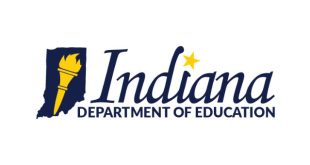Washington, D.C. — U.S. Senator Joe Donnelly today helped the Senate pass the bipartisan Every Child Achieves Act, which would reauthorize and update the Elementary and Secondary Education Act (ESEA). The bill, which would overhaul the flawed No Child Left Behind law, passed the Senate with support from both parties, 81-17. The bill would help ensure students receive a high-quality education, give states and communities the flexibility to improve schools, and increase access to early childhood education. Donnelly successfully worked to include language to promote parent and family engagement in early childhood learning that passed as part of the bill.
Donnelly said, “I am pleased we passed the Every Child Achieves Act because it would help reform the flawed No Child Left Behind law and end the one-size-fits all approach to education. A good education lays a strong foundation for long-term success and is a key way of increasing economic opportunity for Hoosiers. We must ensure all students have access to a quality education and that our educators have the support they need to help our children thrive at school. This legislation would allow us to take important steps forward by: expanding access to early childhood education; promoting family and parent involvement in early childhood learning; and empowering communities, parents, and teachers in partnership with school districts and states to work together to improve our schools.
“Now that the Senate has passed this bill with strong bipartisan support, I hope the House and Senate can work together to reach a compromise and get a bipartisan bill to the President.”
In an effort to improve early childhood learning, the Every Child Achieves Act would establish the new Early Learning Alignment and Improvement Grants. This new competitive grant program would provide funding for states that propose improvements to coordination, quality, and access for early childhood education. Donnelly’s language included in the bill would allow states to use funding from the Early Learning Alignment and Improvement Grant to:
- Develop, implement, or coordinate programs determined by the state to increase parent and family involvement;
- Encourage ongoing communication between children, parents, and families, and early childhood educators; and
- Promote active participation of parents, families, and communities.
Donnelly spoke on the floor of the U.S. Senate on Tuesday about the importance of early childhood education and parent and family engagement in early childhood learning. The parent and family engagement language garnered support from several groups: the National PTA, National Center for Families Learning, National Education Association, and American Federation of Teachers. Donnelly has long-supported pre-K initiatives and has strongly encouraged the State of Indiana to expand pre-K statewide with the use of federal funds. Last year, the state declined to apply for federal funds to expand pre-K to all Hoosier students despite being eligible for $80 million.
In addition to initiatives related to early childhood education, the Every Child Achieves Act also includes provisions that would:
- Provide resources to states and school districts to support teachers, principals, and other educators, so they can implement programs for new teachers, provide ongoing professional development, and recruit new educators to the profession;
- Reauthorize the 21st Century Community Learning Centers afterschool program to provide academic and enrichment activities for students;
- Provide federal grants to develop, revise, or update comprehensive literacy programs for children, from birth to Grade 12;
- Support rural schools by providing more flexible use of federal funding to enable rural school districts to more effectively implement programs;
- Authorize a new program that will support states’ efforts to improve the quality and effectiveness of STEM instruction;
- Help states to improve low-performing schools through federal grants; and
- Restore states’ responsibility for determining how to use federally-required tests.
ESEA was originally signed into law in 1965 and was last reauthorized in 2002.
 WYRZ.org 98.9 WYRZ – The Voice of Hendricks County
WYRZ.org 98.9 WYRZ – The Voice of Hendricks County





